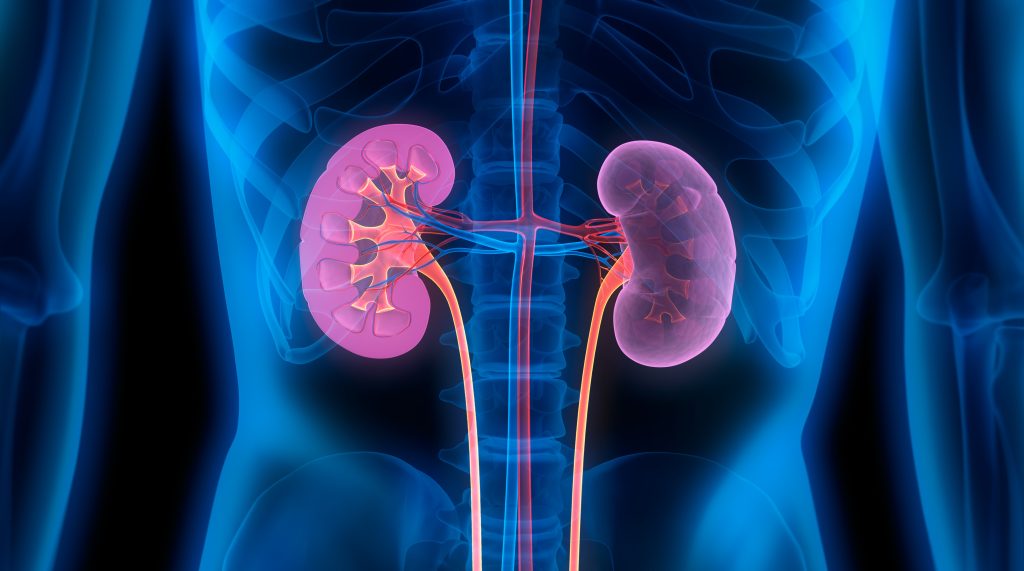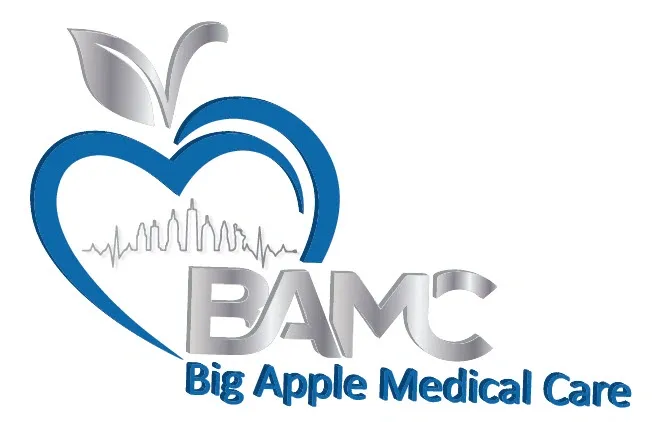Water is fundamental to human life. But beyond the simple truth that one must drink water to survive, proper hydration plays a major role in kidney health, helping prevent kidney stones, supporting filtration of waste, and reducing risk of chronic kidney dysfunction. At Big Apple Medical Care, we believe understanding how much water you need—and how and when to drink it—can make a difference in protecting your renal health now and long term.
In this article, we cover:
-
why hydration matters for kidney function
-
how much water is optimal under different conditions
-
how water intake helps prevent kidney stones
-
signs of underhydration & overhydration
-
practical tips to maintain kidney-friendly hydration
Why Hydration Matters for Kidney Function
The kidneys continuously filter the blood, remove waste products (urea, creatinine, etc.), balance electrolytes (sodium, potassium, chloride), regulate fluid volume, help regulate blood pressure, maintain acid-base balance, and produce hormones (like erythropoietin) essential for red blood cells. Proper hydration enables many of these processes by:
-
Ensuring adequate blood flow and perfusion to the nephrons (functional units of kidneys).
-
Diluting urine, which reduces risk of crystallization and mineral precipitation.
-
Promoting sufficient urine volume to flush out metabolic wastes and toxins.
-
Preventing concentration of substances (oxalate, calcium, uric acid) that can form kidney stones.
-
Modulating levels of antidiuretic hormone (ADH, or vasopressin), which in high amounts may contribute to kidney stress.
Chronic underhydration may contribute over time to kidney damage. Dehydration episodes, especially in hot climates or with physical activity, can strain kidneys, potentially causing acute kidney injury, which if repeated, may lead to long-term decline.
How Much Water Is Optimal?
There is no one-size-fits-all, because individual needs vary by age, body size, climate, activity level, health status (including kidney disease), etc. However, evidence gives us ranges and important targets to aim for.
General Guidelines for Healthy Adults
-
Many public health sources recommend 6-8 glasses of fluid per day (each glass ~8 oz or ~250-300 mL) as a baseline for many people in temperate climates with minimal extra fluid loss.
-
Hydration reviews suggest that optimal total water intake for healthy adults doing mild to moderate activity should approach 2.5 to 3.5 liters (≈ 85-118 ounces) per day, counting both fluid from beverages and from food.
People With Higher Needs or History of Stones
For people who are prone to kidney stones, or have had kidney stones before:
-
Aim for fluid intake sufficient to produce 2.0 to 2.5 liters of urine per day. This usually means drinking more water than what many consume habitually.
-
Some clinical advice suggests 2.5 to 3 liters or more of total fluids daily (10-12 cups) to prevent recurrence of kidney stones.
Environmental, Activity, and Health Modifiers
-
Hot weather, high humidity, or significant sweating increases fluid needs substantially.
-
Physical activity adds fluid loss via sweat and respiration; extra water before, during, and after exercise is essential.
-
Certain life stages or conditions (pregnancy, breastfeeding, illness involving vomiting or diarrhea, fever, kidney disease) require adjustment.
-
In people with reduced kidney function (chronic kidney disease, CKD) or on dialysis, fluid needs or fluid restrictions may be in place; consultation with healthcare provider is essential.
How Hydration Helps Prevent Kidney Stones & Other Renal Problems
Proper hydration exerts multiple protective mechanisms:
Dilution of Urine and Reduced Mineral Concentration
When the urine is more dilute and volume is adequate, there is a lower chance for supersaturation of stone-forming minerals like calcium, oxalate, uric acid. Less supersaturation means fewer crystals forming, slowing or preventing stone nucleation.
Increased Urine Flow
Higher fluid intake increases urine output, which helps flush out small crystals before they grow. It also helps remove metabolic waste and toxic substances more efficiently.
Reduced Risk of Acute & Chronic Kidney Injury
Inadequate hydration can lead to episodes of acute kidney injury (AKI), especially in settings such as heat stress, dehydration, or heavy sweating. Repeated injury over time may contribute to decreased kidney function. Proper hydration helps prevent these insults.
Also, high levels of vasopressin (antidiuretic hormone), which rise when the body tries to conserve water, may contribute to kidney stress over time. Drinking to suppress unnecessary ADH elevation may support renal health.
Prevention of Other Urinary Tract Problems
Good hydration helps reduce urinary tract infections (UTIs) by flushing bacteria, reduces risk of crystalluria (crystals in urine), and helps maintain healthier urinary tract dynamics.
Targets for Urine Volume & Hydration Biomarkers
To get a more concrete sense of what hydration “looks like,” here are measurable targets and signals:
| Metric | Target Range / Description |
|---|---|
| Urine output / excretion | 2.0 to 2.5 liters per 24-hour period (for those prone to stones) |
| Total fluid intake | ~ 2.5 to 3.5 liters per day in healthy adults doing mild/moderate activity. Increase if environment/activity demands more. |
| Urine color | Pale straw yellow or light yellow. Dark yellow indicates dehydration. |
| Frequency of urination | At least 5-7 voids per day (depends on fluid intake) to maintain flow and avoid stagnation. |
Signs of Underhydration & Overhydration (When Drinking Too Much)
Signs of underhydration may include:
-
Dark, concentrated urine
-
Low urine output
-
Thirst, dry mouth or throat
-
Fatigue, dizziness
-
Reduced skin turgor (skin doesn’t snap back easily)
-
Headache
Signs of overhydration (rare in healthy individuals, but possible especially with certain health conditions):
-
Very clear, almost watery urine all the time
-
Swelling in hands, feet or ankles (if kidneys cannot excrete fluid well)
-
Hyponatremia (low blood sodium): symptoms can include nausea, headache, confusion, seizures in severe cases
-
Overburden in kidney disease where fluid restriction is required
If in kidney disease, heart failure, or other chronic conditions, always consult your doctor before increasing fluid intake.
How Much Water When You’ve Had Kidney Stones Before
If you’ve had kidney stones in the past, your fluid strategy is especially important to reduce the chance of recurrence:
-
As noted above, aim for a urine output of at least 2.0-2.5 L/day, meaning higher fluid intake accordingly.
-
Total fluid intake often recommended at 2.5-3.0+ liters per day for stone formers.
-
Spread fluid intake through the day rather than many at once.
-
Increase fluids in hotter ambient temperatures and during exercise when losses are higher.
-
Include citrus drinks (e.g. lemon/lime juice in water) which provide citrate, a compound that reduces stone formation by binding calcium and inhibiting crystallization.
Fluid Types: What Counts and What to Avoid
Not all fluids are equal when it comes to kidney health.
Best kinds of fluids:
-
Plain water (filtered, if possible) — the gold standard.
-
Beverages without excess sugar or additives.
-
Drinks with some natural citrate (citrus water, lemonade without too much sugar) can help prevent stone formation.
-
Foods with high water content: fruits, vegetables, soups. These contribute to total fluid intake.
Fluids to be cautious with or limit:
-
Sugary drinks, sodas, energy drinks — they may increase risk of stone formation and burdening the kidneys.
-
Very high-calcium water (in some regions) or excessively mineral-rich water can sometimes contribute to calcium load though the evidence is mixed.
-
Caffeinated drinks may cause mild diuresis but generally don’t counteract hydration if part of overall fluid intake; moderation is key.
-
Alcohol causes increased fluid loss and dehydration, so it doesn’t count toward hydration in the same beneficial way.
Risks of Chronic Dehydration & Renal Problems
If hydration is consistently insufficient, kidneys face several risks:
-
Increased risk of kidney stones (calcium oxalate, uric acid types).
-
Recurrent urinary tract infections, which can ascend to kidneys (pyelonephritis) and cause scarring.
-
Potential for chronic kidney disease (CKD), especially in contexts of repeated acute kidney injury, high vasopressin exposure, and metabolic insults.
-
Impaired filtration efficiency; accumulation of waste in blood.
-
Increased risk of kidney failure in predisposed populations.
Practical Tips: How to Stay Well Hydrated for Kidney Health
To put the science into practice, here are evidence-based suggestions for maintaining good hydration:
-
Carry a water bottle and keep it with you — having water available makes it easier to drink throughout the day.
-
Set reminders — use phone alarms or apps to nudge you to drink water, especially if you tend to forget.
-
Monitor urine color — pale, straw-colored urine indicates better hydration. If urine is darker yellow or amber, increase fluid intake.
-
Divide intake — don’t try to drink large amounts all at once; spread out intake over the day to maintain steady hydration and avoid overloading kidneys.
-
Adjust for activity and climate — increase intake on hot days, when exercising, or doing outdoor work.
-
Include high-water foods — fruits (watermelon, oranges), vegetables (cucumbers, lettuce), soups, broths.
-
Flavor water if needed — adding lemon or a slice of citrus helps taste and also adds beneficial citrate for stone prevention.
-
Limit high-sodium, high-oxalate, high-sugar foods — because these increase risk of stone formation and burden the kidneys. Combined with good hydration, diet plays a complementary role.
-
Consult a healthcare provider if you have kidney disease — as fluid needs/restrictions may differ; some patients need to limit fluid intake or adjust based on kidney function and treatment (e.g. dialysis).
Special Situations & When to See a Doctor
Certain situations demand special attention:
-
You have chronic kidney disease or reduced glomerular filtration rate (GFR). Overhydration or underhydration could be harmful. Medical guidance is essential.
-
You are pregnant or breastfeeding — fluid demands are higher.
-
You are experiencing symptoms such as very low urine output, swelling, shortness of breath, confusion — could indicate fluid imbalance.
-
History of multiple kidney stones or recurrent stone disease.
-
Hospitalized, ill with fever, vomiting, diarrhea — higher risk of dehydration.
Summary & Recommendations for Healthy Hydration
-
For most healthy adults, aim for 2.5 to 3.5 liters of total water intake per day, including water from food sources.
-
To prevent kidney stones (especially if you’ve had them before), aim to produce 2.0-2.5 L of urine daily, which means higher intake than usual.
-
Drink water evenly through the day, adjust for heat/exercise, and monitor urine color and output.
-
Use water as primary hydration source; limit sugary, processed, or high-salt drinks.
-
If you have kidney disease or other medical conditions, adapt fluid intake under medical supervision.
At Big Apple Medical Care, our team emphasizes hydration as a foundational part of kidney health. We can help you assess your individual hydration needs, evaluate kidney function, address dietary risks, and develop a personalized plan that supports your renal system and overall wellness.







